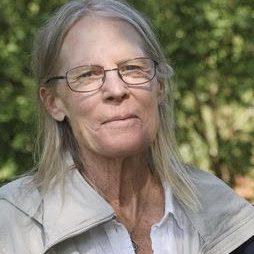In the Death Lodge: Forgiveness, Apology and Reconciliation
Jul 8th, 2024 - Jul 13th, 2024 | Owens Valley, CA | Meredith Little
Resentment is like a glass of poison that a man drinks; then he sits down and waits for his enemy to die.
—Nelson Mandela
Your task is not to seek for love, but merely to seek and find all the barriers within yourself that you have built against it.
—Rumi
Imagine you live in a community that has its own “Death Lodge,” a place where a dying person can rest and receive the visitors who come to say goodbye. This is the natural place of “making it good” with your people so you can cleanly move on, and they can let you go in the fullness of completion. An old hospice teaching says that to complete a relationship five things must be said: “I forgive you”; “you forgive me”; “thank you”; “I love you”; and “goodbye.” This is the sacred work of the Death Lodge.
One of the great challenges we all face in life is to do this work now, when it is most needed, rather than waiting until the last days of our dying. If we don’t keep our relationships current, we risk being weighed down by a lifetime of woundings, angers, and regrets that make it more difficult to surrender to our death, or to the fullness of our life. Too often we become stuck in the mire of too much memory, or we hide from ourselves in the secret of trying to forget. We risk turning into yet another cycle of anger, vengeance and victimization.
In this gathering we will explore together what the four shields of Forgiveness, Apology, and Reconciliation have to teach us about restoring a personal and communal balance that embraces the wounds of the past. Where is it that we are likely to get stuck in the turning of this wheel? And when might we forgive too soon, or apologize too shallowly? Jewels to be found in these lodges are godlike qualities: mercy, compassion, essential self-respect, and maybe even the grace to forgive the “unforgivable.” If you listen, today more than ever, you can hear a cry for this kind of healing—be it in the lives of individual friends, or in the biggest stories of our time. That cry is calling for each of us to do the wrenching work of self-reflection and personal healing, which evokes the deeper levels of our humanity, offering the possibility of a reconciliation with self and others that is sacred, humbling, and ultimately life-changing.
Our aim is both educational and therapeutic. Educationally, we will see how the wisdom of the modern hospice movement and the ancient, pan-cultural wisdom of indigenous ways and the 4 shields can be interwoven. Therapeutically, time spent alone in nature each afternoon will encourage you to experience the wisdom of your own nature, and your personal truth about forgiveness and apology in your life. In the late afternoon and evening we will sit in council to hear the stories of this solo time, and learn from each other.
Additional course details & Materials
We will meet on Monday, July 8th at 2pm at
Tinnemaha Campground
which is 10 miles south of Big Pine, so please arrive earlier to begin to set yourselves up at the campground.
Our last council will be the morning of Saturday, July 13th, finishing by noon at the latest.
ADDITIONAL FEES: We will split the cost of the campsites that we reserve.
More detailed logistical information will be sent to you about 1 1/2 months before we meet. Ask questions whenever they arise.
You will be responsible for bringing your own food and equipment, though we can provide some gear if needed. We ask everyone to come prepared to live self-sufficiently. You will need to bring shelter and clothing suitable for a full range of inclement weather.
All participants must submit the required health questionnaire and liability form.
If you have questions about the enrollment process contact us at [email protected] or call 760-938-3333.
The Trail to the Sacred Mountain Handbook. Recommended reading: The Final Crossing, by Scott Eberle All publications are available at Lost Borders Press.
We will gather in the eastern mountains of Payahuunadü (also known as the Inyo Mountains) east of Big Pine, California. These are the ancestral and contemporary lands of the Nüümü and Newe people.
To learn more about our commitment to regenerative relationships please visit Cultural Relations.


